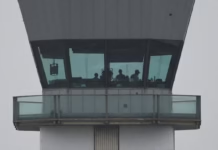Drone operators in Kenya have been warned of severe consequences if they fail to obtain licenses from the Kenya Civil Aviation Authority (KCAA).
Offenders risk fines ranging from Sh6 million to Sh12 million or jail terms of six to 12 years, or both.
The KCAA, tasked with overseeing drone operations in the country, revealed that only 24 approved Remote Air Operator Certificates and 18 licensed resellers or distributors currently exist. The surge in drone popularity, particularly in the filmmaking industry, has made proper regulation critical.
“Drones have transformed filmmaking, enabling stunning visuals at reduced costs,” said Francis Kigen of KCAA during a forum with creatives.
He encouraged filmmakers to comply with licensing requirements, noting that the process, including vetting by a multi-agency team, takes about a month.
Filmmakers must meet specific requirements, including third-party insurance and a letter of no objection from the location where they intend to operate.
The forum, part of the Creatives in Arts and Film Literacy (CAFiL) Programme, aims to empower local filmmakers while safeguarding Kenya’s cultural values. Organized by the Kenya Film Classification Board (KFCB) in partnership with the Sports, Arts, and Social Development Fund (SASDF), the program has already rolled out in Nairobi, Kisumu, Nakuru, Embu, Machakos, and Mombasa.
Acting KFCB CEO Pascal Opiyo highlighted the launch of a Regulators’ Handbook for Film Practitioners in Kenya, a guide designed to simplify compliance for filmmakers. The handbook covers a range of topics, including drone regulations, tax obligations, copyright protection, and filming in protected areas.
“The handbook is a resource for creatives to navigate the regulatory landscape with ease,” Opiyo stated. He also announced reforms, such as allowing filmmakers to obtain licenses directly from KFCB, eliminating the need for film agents.
These initiatives aim to create a conducive environment for Kenya’s burgeoning film industry to thrive.



















